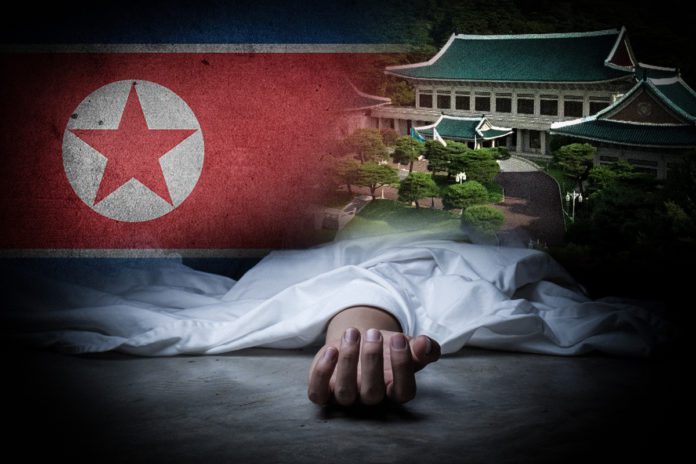Move indicates Moon is hiding major details
South Korea’s presidential Blue House said that it will not disclose documents related to the killing of a civil servant who was killed by North Korean troops after he went missing near the border. The September 22, 2020 incident was highly criticized by many South Koreans that claimed the government is trying to hide the truth of the case.
North Korea argued that its soldiers killed the 47-year-old official working for the South Korean Ministry of Oceans and Fisheries and set his body on fire for fear that he might be carrying the coronavirus. This was the first time North Korea killed a South Korean citizen in its territory since 2008.
According to the Seoul Economy newspaper on October 15, the Blue House responded to a court’s request to release related documents by saying that these documents are planned to be designated as presidential records so they will not be released. “Presidential records contain various sensitive information that is related to the national security and the economy of the people,” the Blue House told the court. “Information that is planned to be designated as presidential records should also be protected.”
In October last year, the older brother of the victim, Lee Rae-jin, requested the government to release information on electronic intercepts of the North Korean soldiers, testimonies from his brother’s nine coworkers, and communication records of the Blue House on the day of the incident. The government rejected the request. That is why Lee filed a lawsuit against the government to disclose this information in January this year. The Seoul Administrative Court held its first hearing in August, 7 months after the filing. Since the beginning of the trial, the Blue House argued that it is not going to disclose this information, citing “improvement of peace on the Korean Peninsula,” and “establishment and implementation of a peaceful reunification policy.” As the court began to hold hearings on the case, the Blue House changed its stance, saying the requested information will be presidential records in the future.
The Act on the Management Of Presidential Archives states that the “protection period may be determined within the extent of 15 years,” and “that in cases of records concerning the privacy of individuals, the protection period may be determined within the extent of 30 years.” Once designated as presidential records, documents are not subject to disclosure. The protection period starts on the day the president’s term ends.
However, the documents related to the killing of the South Korean civil servant have not yet been designated as presidential records. The family members of the victim argue that the Blue House is trying to prevent the information from being released to the public by saying information that will become presidential records should also be protected. “They came up with a new excuse not to release the information, even though it has not been categorized as presidential records yet,” said Lee Rae-jin. “They are trying to buy time until the end of their term in office.”
It is not just the Blue House that is not being transparent on this incident. The indictment filed by the Korea Coast Guard (KCG) accused “a North Korean soldier whose name is unknown” of committing murder. The KCG added that it is cooperating with the United States and China in investigating this case.
The Seoul Economy newspaper reported that the KCG’s indictment document reveals that they are not sure what really happened to Lee. It was not even able to name who was the actual perpetrator and when, how, and why the person committed this crime.
This is not the first time that family members of the victim have accused the Moon Jae-in administration of hiding facts about the incident and not conducting a thorough investigation. In July, the government-run National Human Rights Commission of Korea ruled that the KCG violated the human rights of the family members of the victim of North Korean violence. The KCG released the victim’s financial records, including debt and possible gambling issues. It also said he had some mental health issues and that there was a high chance he tried to defect to North Korea when considering these facts. This angered many people who felt the government was trying to blame a South Korean citizen for the incident instead of North Korea.
The commission ruled that “the KCG described the man as having ‘mental health issues’ without providing objective reasons to believe so and released his financial records, such as a number of transactions related to gambling and the amount, to say they are evidence of his defection to North Korea.” It added that “by releasing such information to the media, the KCG gravely violated the human rights, secrecy, and privacy of his family members.”
Lee Rae-jin also told the news media in July that the Blue House is intentionally avoiding the victim’s family members. He said he sent a message to Park Kyung-mi, spokesperson for the Blue House, and requested a meeting with the president. However, his messaging application showed that Park read the message but gave no answer to it. Lee argued that President Moon Jae-in is not keeping his word. In October last year, President Moon wrote a letter to the victim’s high school-aged son that said, “I promise that I will personally take care of this to conduct every process transparently and find the truth.”
The Blue House’s recent cover-up of documents seems to contradict this statement.


